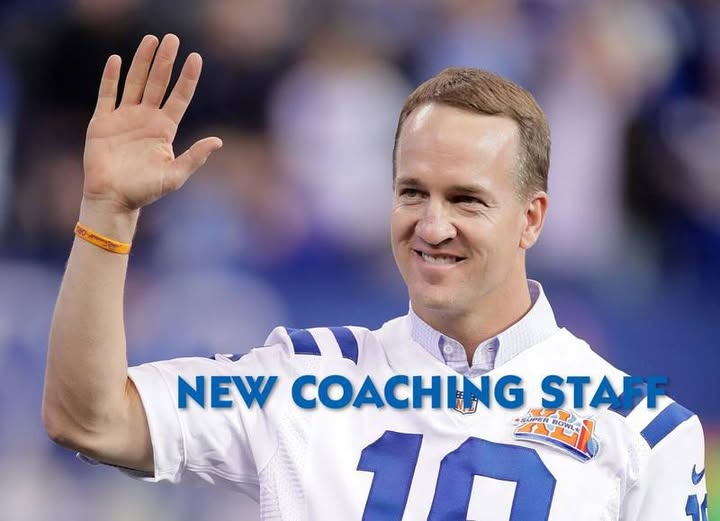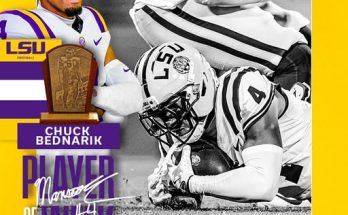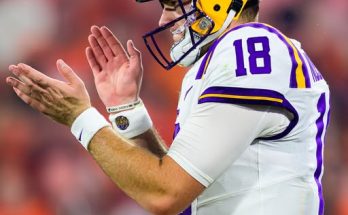**This Is the Finest News We Could Hope For: Peyton Williams Manning’s Legendary NFL Career**
Peyton Williams Manning is a name that resonates with excellence, leadership, and an unparalleled legacy in the National Football League (NFL). Over the course of his illustrious eighteen-season career, Manning redefined what it meant to be a quarterback, leaving an indelible mark on the sport that continues to inspire players and fans alike. His journey from a highly touted college prospect to one of the greatest quarterbacks in NFL history is a story of perseverance, intelligence, and an unrelenting passion for the game.
Born on March 24, 1976, in New Orleans, Louisiana, Peyton Manning was destined for football greatness. The son of former NFL quarterback Archie Manning and the older brother of future NFL star Eli Manning, Peyton grew up immersed in the sport. His natural talent and football IQ were evident from an early age, and he quickly rose through the ranks as a standout high school quarterback at Isidore Newman School in New Orleans.
Manning’s college career at the University of Tennessee further solidified his reputation as a generational talent. Under the guidance of offensive coordinator David Cutcliffe, Manning honed his skills, demonstrating remarkable poise, accuracy, and football intelligence. He finished his collegiate career as the SEC’s all-time leader in passing yards (11,201) and touchdowns (89), setting the stage for his eventual selection as the first overall pick in the 1998 NFL Draft by the Indianapolis Colts.
From the moment he stepped onto an NFL field, Peyton Manning was different. His ability to read defenses, adjust plays at the line of scrimmage, and deliver pinpoint passes made him an immediate force. Though his rookie season had its struggles (including a league-high 28 interceptions), Manning’s relentless work ethic and film study quickly transformed him into one of the league’s elite passers.
The early 2000s saw Manning and the Colts evolve into perennial contenders. Alongside offensive weapons like Marvin Harrison, Reggie Wayne, and Edgerrin James, Manning orchestrated one of the most explosive offenses in NFL history. His 2004 season was particularly historic, as he threw for a then-record 49 touchdown passes, breaking Dan Marino’s long-standing single-season record. That same year, he earned his first NFL MVP award—an honor he would claim five times throughout his career, the most in league history.
Despite regular-season dominance, postseason success initially eluded Manning. Critics often pointed to his inability to win “the big game,” but that narrative changed in the 2006 season. After leading the Colts to a dramatic comeback victory against the New England Patriots in the AFC Championship Game, Manning finally reached the Super Bowl. Facing the Chicago Bears in Super Bowl XLI, he delivered a composed performance, earning MVP honors as the Colts secured a 29-17 victory. The Lombardi Trophy was his, silencing doubters and cementing his place among the game’s all-time greats.
After a neck injury sidelined him for the entire 2011 season and led to his release from the Colts, many wondered if Manning’s career was over. However, in one of the most dramatic free-agent moves in NFL history, he signed with the Denver Broncos in 2012. What followed was a renaissance that further solidified his legend.
In Denver, Manning found a team built to win immediately. With a talented receiving corps featuring Demaryius Thomas, Emmanuel Sanders, and Wes Welker, he continued to rewrite the record books. The 2013 season was arguably the greatest statistical year for any quarterback in history—Manning set single-season records for passing yards (5,477) and touchdowns (55), earning his fifth MVP award.
Though the Broncos fell short in Super Bowl XLVIII against the Seattle Seahawks, Manning returned with a vengeance in 2015. Despite a noticeable decline in arm strength, his football IQ and leadership guided Denver to another Super Bowl appearance. In Super Bowl 50, the Broncos’ dominant defense stifled the Carolina Panthers, and Manning, at 39 years old, became the oldest starting quarterback to win a Super Bowl. It was a storybook ending to a remarkable career.
Peyton Manning’s impact on the NFL extends far beyond statistics and accolades. He revolutionized the quarterback position with his pre-snap adjustments, film study, and ability to dissect defenses like no other. His famous “Omaha!” audibles became part of football lore, showcasing his mastery of the mental aspect of the game.
Off the field, Manning’s charisma and humor made him one of the most beloved figures in sports. His hosting stints on *Saturday Night Live* and countless commercials demonstrated his widespread appeal beyond football. Additionally, his philanthropic efforts, including the PeyBack Foundation, have left a lasting impact on communities across the country.
Debates about the “Greatest of All Time” (GOAT) in football will always include names like Tom Brady, Joe Montana, and Johnny Unitas. But Peyton Manning’s case is undeniable. His five MVP awards, two Super Bowl rings, and countless records speak for themselves. More than that, his influence on how the quarterback position is played today is immeasurable.
For eighteen seasons, Peyton Manning was the epitome of excellence, resilience, and football brilliance. His return to the spotlight—whether through broadcasting, philanthropy, or occasional appearances—reminds us why this is the finest news we could hope for: the legacy of Peyton Manning is one that will endure for generations. The NFL was forever changed by his presence, and fans were privileged to witness one of the greatest careers in sports history.



